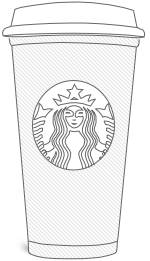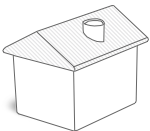Hopefully it doesn't happen every day, but stressing over your personal finances is simply a matter of being a grown man. There's always going to be something popping up, making you feel like you could (or should) be earning a better salary, spending less or saving more. And then there are all these arbitrary financial rules we've all heard for years that can make you feel like you're not handling your money correctly. But, it turns out, not all these mandates are universal. Herewith, five rules you should be breaking.

Small purchases are making you broke

Picking up a bagel in the morning, an afternoon coffee run or grabbing a drink after work ... no doubt that it all adds up. Do you need them all? No way. But just like depriving yourself of sweets on a diet, pinching every penny can make you feel pretty bad and eventually lead to a spending binge. Rather than cutting every single small purchase, go over your spending for the past month and prioritize which ones you can cut and which ones bring you joy or pleasure.
Buying things on credit is bad
Credit cards are not evil. When they are used responsibly, they can actually help you save money. No one knows this better than savvy consumers who pay for goods and services with rewards credit cards. Or those who take advantage of the "no interest" policy on items purchased on a store's credit card. Plus, according to Beverly Harzog, author of The Debt Escape Plan, they're vital to building a good credit score. She suggests choosing a card with no annual fees, and only getting a rewards card if you're sure you can pay off the balance each month (they typically have higher interest rates).
Save Money
Save Your Health
An easy way to save money is to swap flavored beverages for water. It's free, it's good for your health and it's available everywhere. Just a few less visits to the soda machine or corner store will keep a decent amount of cash in your pocket.
You have to be debt-free to save or invest
Although this is generally a sound rule, there are a few justifications for breaking it. First of all, personal finance isn't an all-or-nothing practice. And secondly, managing debt is now a fact of modern life. If your debt is relatively low-interest, there are some serious benefits to paying it off more slowly in favor of saving money first (such as for retirement or major expenses). Remember, compound interest has immense value, and the more money you can invest earlier in life, the more you'll have in the long run and the less money you'll have to invest overall. And while it can be tempting to forego 401(k) contributions when your paycheck is lean, you're essentially leaving money on the table and you'll only have to save more later in life to catch up.
Always put away 10% of your income
This is a somewhat arbitrary rule, since 10% may or may not be enough for you to reach your savings goals. Focus on the amount of money you need saved in the end and work backwards from there. If you're simply trying to save for your emergency fund, try putting $50 a month or 5 percent of each paycheck (whichever is easier) into an online savings account until you've saved a nest egg of one month's expenses. Online banks offer higher interest rates than standard banks—for example, $3,000 in your account could earn $150 in interest over five years versus the paltry two bucks you'd get in a typical account.

Buying a home is better than renting

Owning a home remains the centerpiece of the American dream, even though more American households are renting than buying homes today. Buying is somewhat of an outdated rule of thumb for young people who increasingly find themselves moving from city to city for work. Unless you plan on staying in a house for nearly a decade, you're better off renting as the savings and profits from purchasing a home don't typically kick in until year seven, according to data from Trulia (which has a handy "rent or buy" calculator for your area).
Save Money / Save Your Health
An easy way to save money is to swap flavored beverages for water. It's free, it's good for your health and it's available everywhere. Just a few less visits to the soda machine or corner store will keep a decent amount of cash in your pocket.